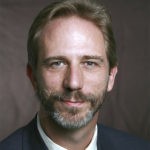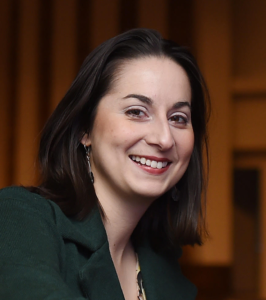A moderate Baptist ethicist says U.S. churches should show compassion toward undocumented immigrants in ways that are legal, but he isn’t convinced that flaws in America’s immigration system rise to the level of a moral issue to justify the use of civil disobedience.
David Gushee, distinguished university professor of Christian ethics at Mercer University’s McAfee School of Theology and director of Mercer’s Center for Theology and Public Life, analyzed the New Sanctuary Movement — the name given to the growing number of churches and other faith groups choosing to shelter families facing separation due to what they believe are unjust immigration laws — in a Religion News Service column March 19.
Gushee, who is currently serving as interim pastor of First Baptist Church in Decatur, Ga., said he supports legislation for comprehensive immigration reform, but he doesn’t think the government’s enforcement of current law represents “such a clear and profound” violation of human rights that churches are permitted or obligated to disobey.
“There are many such cases in human history,” Gushee opined. “Despite my sympathy for undocumented immigrants, I do not believe this is one of them. We have to draw a distinction between laws that we think could be improved versus laws that are an inversion of the very purpose of law, and therefore fundamentally unjust.”
Critics accused the longtime professor — writing in this case from the perspective of a local church pastor sorting through the various requests to align with organizations or embrace particular causes that come in from week to week — of letting his white privilege show.
“We don’t very often read our Scriptures through the lens of the immigrant experience,” said Maria Swearingen, senior co-pastor of Calvary Baptist Church in Washington, D.C. She said American Christians typically don’t think of biblical characters like Abraham and Sarah as immigrants or of Ruth as a refugee “because we don’t have to.”
Calvary Baptist Church voted in January to join the national sanctuary movement and become a safe haven for immigrants in light of recent actions regarding immigration taken by President Donald Trump. The church plans to establish a satellite legal clinic to serve those in need in the D.C. area and open its facilities to immigrants at risk of imminent deportation.
Swearingen, daughter of a Southern Baptist pastor and Puerto Rican mother who grew up speaking Spanish in a bilingual household, recommended that clergy like Gushee “listen directly and deeply to stories of undocumented people.”
“I don’t mean read articles about them or their experiences,” she said. “I mean very specifically, talk with them, both to learn their stories and their experiences navigating our immigration system.” If you don’t know someone like that, she suggested, “a re-evaluation regarding what relationships you do and not have is well worth deeper reflection, particularly if you seek to make claims of your own social justice commitments as a pastor.”
Gushee, who in the past has worked as theologian-in-residence with the Cooperative Baptist Fellowship and as senior columnist for Baptist News Global, said “it is undoubtedly true that God loves everyone, and that people need a safe place to live, work and worship,” but “this cannot mean that every human being has a right to live in any country that they might choose.”
“This would imply that either there should be no immigration laws in any country, or that such laws should never be enforced,” he argued.
“Undoubtedly there are many violations of justice and rights in the immigration enforcement process, but I cannot agree that any immigration law enforcement is by definition unjust,” he said.
“If our government were to start targeting and deporting a group of its own citizens, such as Baptists or Jews or Mormons or Muslims or citizens of Swedish or Somali descent, then we would have a clear, flagrant violation of the Constitution and American laws, and the strongest forms of protest and resistance would be demanded of all of us,” Gushee said. “But we are talking about non-citizens, who are here illegally. That is a very different kind of public policy question, and the difference should not be missed.”
Swearingen said the Sunday before she read Gushee’s piece, her church hosted a “know-your-rights” training for the congregation and wider D.C. community.
“As we sifted through bullet point after bullet point, I could sense anxiety levels rising,” she recounted. “How could they not? We were talking about establishing guardianship should deportation result in separation between parents and children. We were talking about ICE raids and detention centers. We were talking about the power of our words to unjustly detain and incarcerate whole swaths of people.”
“And at one point, I had about all I could stand as I thought about my passport tucked away safely in my house, ensuring that I never have to spend time anxiously flipping through a ‘know-your-rights’ training, wondering if any wrong turn I make would result in my imprisonment,” she continued.
Tossing aside her notes, she said in Spanish: “This whole system is built on ensuring that you understand yourselves as criminals. That you duck in and out of the shadows. That you never see yourselves as citizens of a particular place. But you are not criminals. You are not illegal. You are citizens of the kingdom of God. And no matter what anyone tells you, your citizenship is in heaven. And as a community of faith, we will do everything in our power to renounce this language of criminality, together.”
Related stories:
Religion students petition Baylor to become sanctuary campus
Trump inspiring more churches to enter sanctuary movement
Related opinion:
Being sanctuary: Calling churches to holy risk / Cody Sanders


